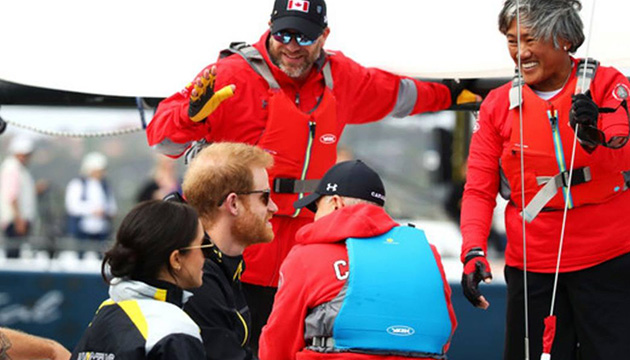July 1, 2024 — Amid tensions in the South China Sea, the Philippines, Canada, U.S., and Japan held joint naval drills in the disputed region.
The exercises were held on June 16 and June 17, 2024, in what the U.S. Pacific Fleet described as a “Maritime Cooperative Activity (MCA) in the Philippines’ Exclusive Economic Zone”.
Generally, an “exclusive economic zone,” or “EEZ” is an area of the ocean, which extends 200 nautical miles or 230 miles beyond a nation's territorial sea and within which a coastal nation has jurisdiction over its resources.
In a media release on June 17, 2024, the U.S. Pacific Fleet stated that the MCA was aimed at “upholding freedom of navigation and overflight, reaffirming the four nations’ commitment to bolstering regional security and stability”.
The MCA featured the Armed Forces of the Philippines' Gregorio del Pilar-class patrol ship BRP Andres Bonifacio, the Royal Canadian Navy's Halifax-class frigate HMCS Montreal, the U.S. Navy's Arleigh Burke-class guided-missile destroyer USS Ralph Johnson, and the Japan Maritime Self-Defense Force Murasame-class destroyer JS Kirisame.
“The MCA involved a series of activities and maritime maneuvers to test and validate the interoperability of our armed forces' doctrines, tactics, techniques, and procedures,” the U.S. Pacific Fleet release stated.
“It also provided an opportunity to demonstrate professional interactions among naval and air forces rooted in long-standing military traditions and customs. These exercises were conducted in accordance with international law, ensuring the safety of civil maritime navigation and the protection of the marine environment.”
The Philippines is involved in six-nation dispute over the South China Sea.
China claims most of the contested territory, and its naval vessels have figured in incidents with Philippine watercrafts.
Like the Philippines, four other nations have claims in portions of the South China Sea. These are Brunei, Malaysia, Taiwan, and Vietnam.
On the second day of the joint naval drill, a Chinese vessel and a Philippine supply ship collided near the disputed Spratly Islands in the South China Sea on June 17.
China’s coast guard reported that a Philippine supply ship entered waters near the Second Thomas Shoal, a submerged reef.
The Philippines assets that the shoal falls within its internationally recognized exclusive economic zone.
The Philippines also cites a 2016 international arbitration ruling invalidating China’s expansive claims over the South China Sea.
The Second Thomas Shoal or the Ayungin Shoal to the Philippines lies within the exclusive economic zone of the Philippines.
In 1999, the Philippine Navy deliberately grounded one of its ships, the BRP Sierra Madre, in the shoal to assert its claim. The decaying ship has since served as its outpost in the contested area.
A number of Philippine supply missions to BRP Sierra Madre have triggered incidents with Chinese vessels.
The Canadian ship HMCS Montréal, which participated in the June 16-June 2024 naval drills, is a Halifax Class Frigate.
A departure ceremony was held for the frigate and crew in Halifax on April 14, 2024.
“The departure of HMCS Montréal later this week will represent the first of three Royal Canadian Navy (RCN) warships that are annually deploying under Operation HORIZON in support of the Government of Canada’s Indo-Pacific Strategy,” stated an official Canadian government release on the said day.
“This deployment demonstrates an enduring commitment to the Indo-Pacific region and enhances Canada’s role as an international security partner.
“Throughout the operation, HMCS Montréal will reinforce ties with international allies and strengthen relationships with like-minded nations by integrating with partner navies, participating in training exercises, and engaging in military and diplomatic cooperation. Operation HORIZON includes expanded opportunities to work side-by-side with allies and partners, empowering the Canadian Armed Forces (CAF) to play a more active role contributing to regional security.”
Commander Travis Bain is the commanding officer of HMCS Montréal.
“The ship’s company of HMCS Montréal has been diligently preparing for Operation HORIZON, and I have the utmost confidence in their ability to display excellence at sea and enhance interoperability with allied navies,” Bain said in the government’s release.
On November 27, 2022, Canada launched its Indo-Pacific Strategy, representing a comprehensive road map to deepen its engagement in the region over the next decade.
This means increasing Canada’s contributions to regional peace and security, strengthening economic growth and resilience, enhancing people-to-people ties, and supporting sustainable development across the region.
In a media release regarding the launch of the strategy, the Canadian government noted that the Indo-Pacific is the world’s fastest-growing economic region and accounts for 65 percent of the world’s population.













